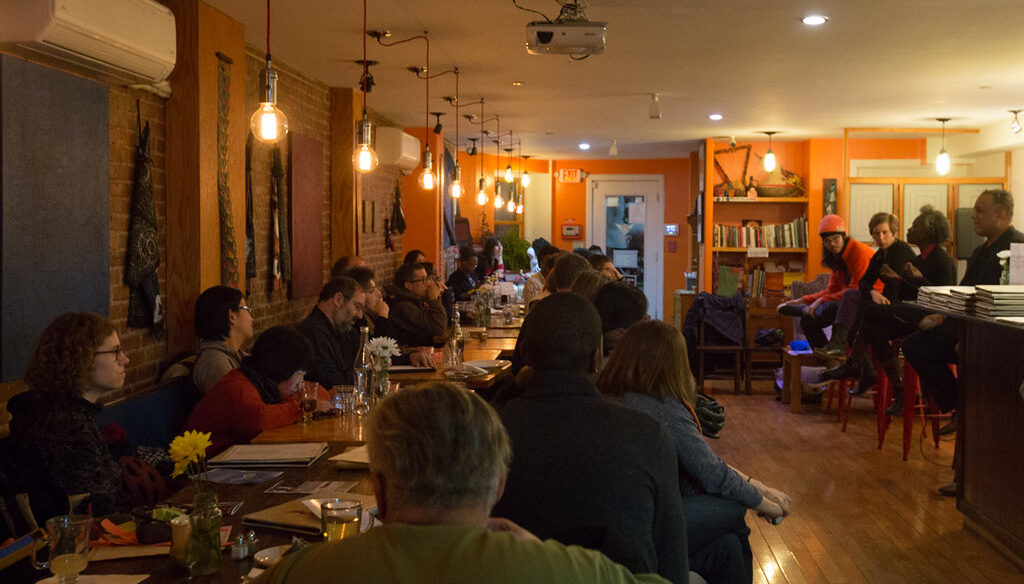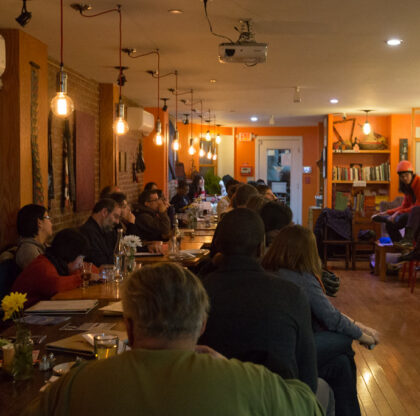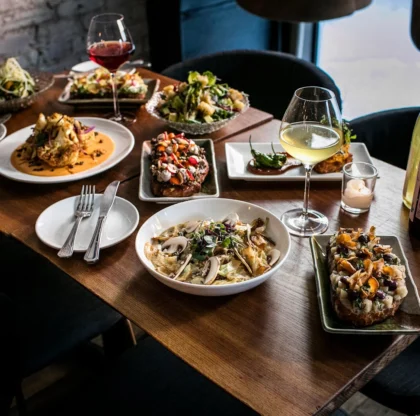Get the latest food, drinks and things to do news directly to your inbox. Subscribe Now
When Beejhy Barhany, an Ethiopian Jew part of a community that left East Africa on foot to reach Israel, opened Tsion Cafe at 763 St. Nicholas Avenue by West 148th Street in Harlem back in 2014, the city’s culinary crowd noticed.
“Tsion is at its most interesting when different cultures that Barhany has experienced come together in her dishes,” wrote The New Yorker‘s Nicolas Niarchos wrote in 2017.
The eatery’s longevity—especially through a global pandemic that upended the way we dine out—is further proof of its hold on the neighborhood and its gastronomic excellence, all offered in a space that has remained virtually unchanged since its inception—until now.
Earlier this year, in reaction to the events of October 7, Barhany decided to obtain a kashrut license. Tsion Cafe is now fully kosher and vegan.
“What pushed me towards [going kosher] is the whole ordeal of what’s happening towards Jews, as a whole, since October 7,” Barhany said to the New York Jewish Week back in February, also revealing that Tsion Cafe has been the site of antisemitic vandalism in recent months. “I am proud of my identity, being a Black Jewish woman here in the U.S., in Harlem, and I felt like, you know, what is better to illuminate, to shine and showcase who I am — no matter what, even though the hatred towards us has increased — and become fully kosher.”
If the social media response to the restaurant’s announcement earlier this year is of any indication, the decision to turn kosher and vegan has been good for business, with folks flocking to Harlem—generally speaking not a prevalently Jewish neighborhood—to order dishes like the mama Africa bowl (Jollof rice, black-eyes peas cooked in coconut milk, plantains and beets served with homemade tahini), the oyster mushroom wot (mushroom stewed with herbs and Ethiopian spices served with injera), sambusa (fried pastries filled with lentils) and, of course, halva.
“Jews—we’ve been throughout the diaspora, different countries, different parts of the world, and we adopt the cuisine of that particular country,” Barhany said to the New York Jewish Week a month ago. “I think Jews have every right to claim food that they’ve been growing up with and call them Jewish food.”



